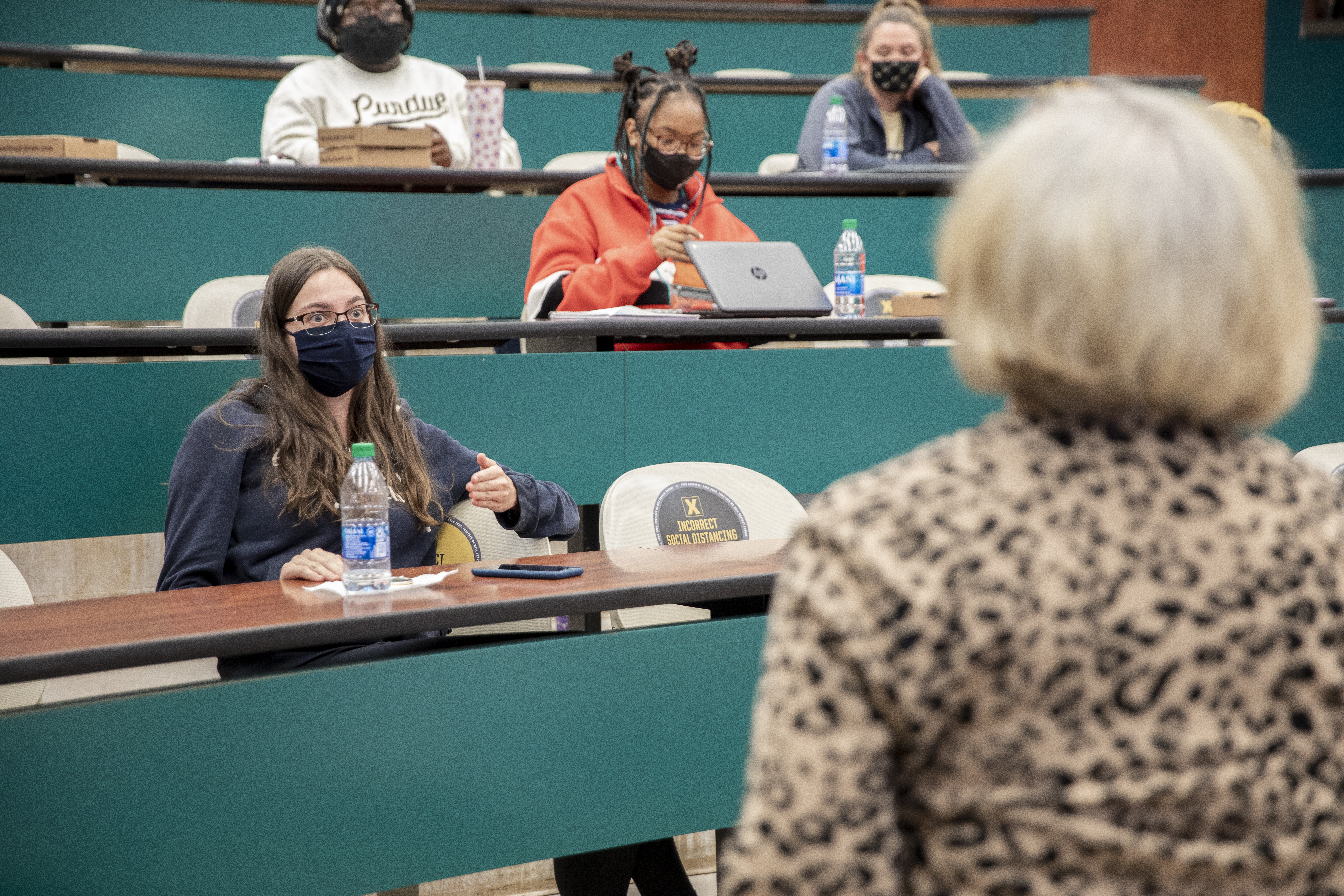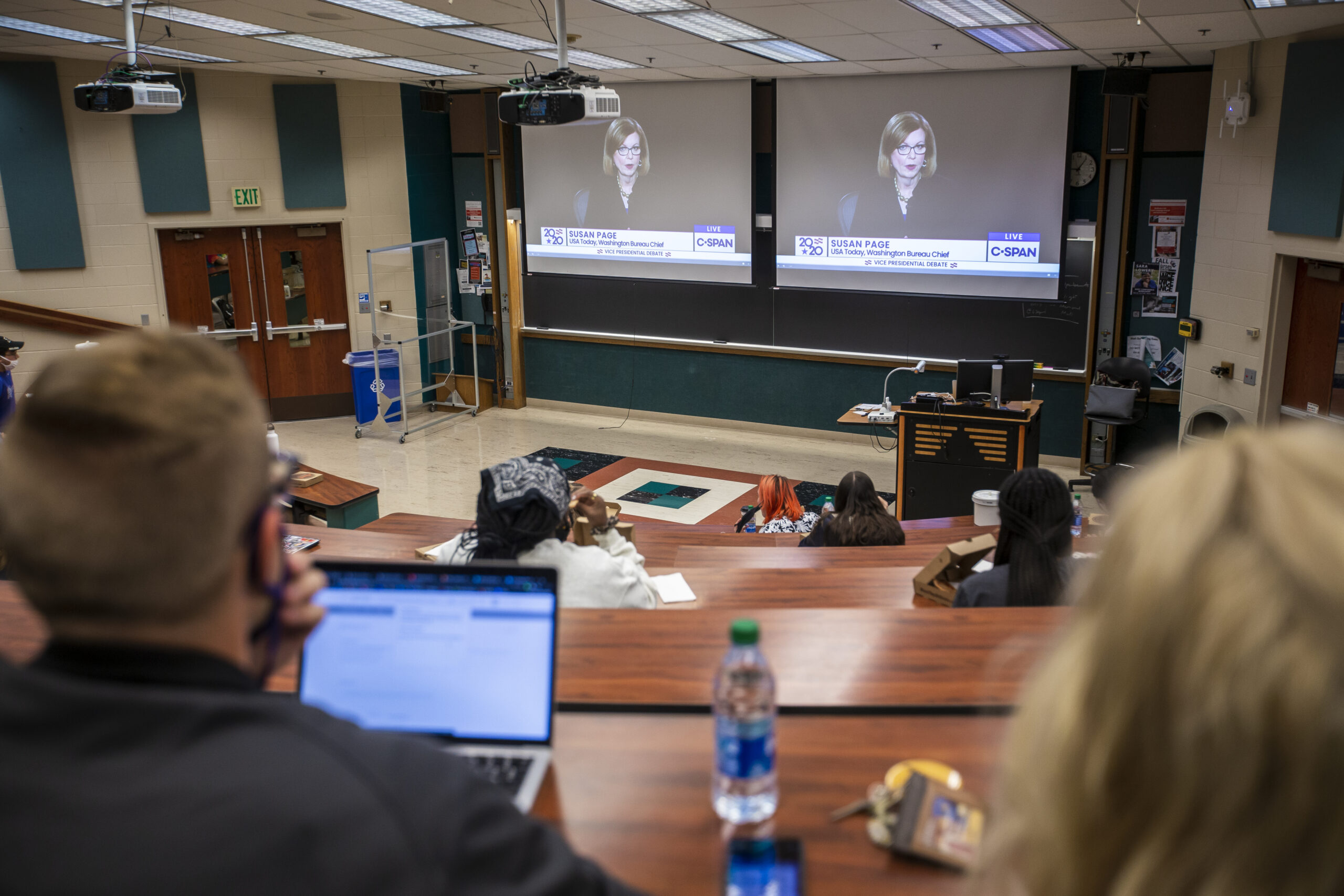Polarized politics
Political science professors study managing emotions, importance of listening

How do citizens’ emotions affect the ways they engage with news and politics, and what role does listening – and the desire to be heard – play in their willingness to participate in the political process?
Understanding these issues seems especially important in this polarized era, and research by two Department of Political Science faculty members should provide some much-needed clarity.
A book co-authored by department head Cherie Maestas to understand the public’s response to the government response to Hurricane Katrina could just as easily serve as a playbook for those evaluating its efforts during the COVID-19 pandemic.
“Theories that apply in one catastrophe often apply in another because humans respond to shock and anxiety in similar ways,” said Maestas, who co-wrote “Catastrophic Politics: How Extraordinary Events Redefine Perceptions of Government” (Cambridge University Press, 2012) with Lonna Rae Atkeson.
“What I do is study public opinion and, in particular, political psychology,” she said. “I’m trying to understand how characteristics of individuals, the emotions they feel, the experiences they have, and the environment around them all influence how they form attitudes and how they make decisions about political engagement.”
Maestas, who studies the role emotion plays in processing information, is testing similar theories as part of a team receiving funding through two grant projects: one funded by the National Science Foundation (NSF) and the other funded by the Army Research Office. The research teams were awarded both grants while she served as the Marshall A. Rauch Professor of Political Science and director of the public policy program at the University of North Carolina-Charlotte’s College of Liberal Arts and Sciences.
The NSF grant, where she once again collaborates with her “Catastrophic Politics” co-author Atkeson and is joined by Sara Levens, associate professor of psychological sciences at UNC Charlotte, focuses on strategies for managing emotions and how those strategies shape political engagement. The study examines reactions to unexpected, emotion-provoking events like the shooting of Rep. Steve Scalise (R-Louisiana) and the mass shootings at a Las Vegas concert and at Mary Stoneman Douglas High School in Parkland, Florida.
“Our survey team was in the field nationally after each one of those events,” Maestas said. “In addition to looking at how people were generally managing their emotions about politics, we looked at how people were managing their emotions in response to the news of these shocking shootings.
“In each case, those who managed their emotions in ways that we think of as disengaging – avoiding news, suppressing their feelings, and distracting themselves by other things – were less likely to engage, politically, in trying to change policy compared to those who managed their emotions by focusing on the long-term picture and seeing support from people close to them.”
The team-based study for the Army Research Office, led by Levens, utilizes a multi-method approach to explore how emotion spreads interpersonally and whether people send subtle cues to one another about how emotionally expressive they should be in moments of crisis.
Similarly, Molly Scudder, assistant professor of political science, examines ways to improve democracy in the country’s current atmosphere. Scudder, whose first book, “Beyond Empathy and Inclusion: The Challenge of Listening in Democratic Deliberation” (Oxford University Press, 2020), was released in September, believes democracy requires that all citizens be heard.
“Deliberative democracy takes the view that the outcome of the vote is important and relevant, but we also have to pay attention to what comes before a vote,” Scudder said. “What are the processes, the discussions, and debates by which people make up their minds when going to the polls and participating in an election?”
Scudder added that politics creates winners and losers, but as long as voices are heard, democracy remains intact.
“The book is all about the importance of listening,” she said. “We as citizens are not entitled to get our way. Not everybody can win a debate or a vote, and we know that, especially in a large, diverse country like the United States. People are going to be on the losing side of politics. How can those citizens accept the outcome as legitimate, as democratic, as having somehow reflected their own view?
“I argue that listening is really key there. By being heard, we are included in a meaningful way in the decision-making process.”
Despite the vast breach that now exists between the country’s two major political parties, Maestas thinks those with opposing political viewpoints are often on the same page when it comes to the initial reception of catastrophic news.
“We developed a theory about how extraordinary moments lead to very different outcomes, and in some ways, I think, very hopeful outcomes,” Maestas said. “[Catastrophic events] create a moment when everybody’s engaged and everybody, for the most part, is seeing similar information. Even though we live in a world where there’s a lot of partisan spin, there are certain things that aren’t easy to spin.
“If you open up the paper and see the number of COVID cases or the number of deaths or the scenes on the street or in the hospital, it’s very difficult to put a spin on that. … What we found with Katrina is that people who were tuning in and anxious about the situation tended to arrive at similar conclusions, regardless of partisanship. An anxious Republican and an anxious Democrat tended to have pretty similar conclusions.”
